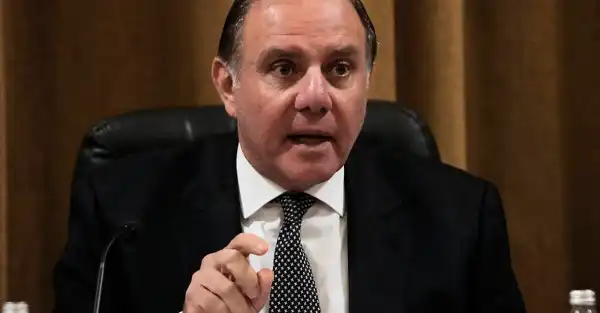Judge Aileen Cannon gave the defense team until Tuesday to begin the process, underscoring how classified information will be fundamental to the trial.
- Give this article

Judge Aileen M. Cannon ordered lawyers for President Donald J. Trump to start the process for obtaining security clearances.
The judge overseeing former President Donald J. Trump’s indictment on charges of illegally retaining national defense information issued an order on Thursday instructing any lawyer who wants to take part in the case to start the process of obtaining a security clearance to handle classified material by early next week.
The brief order by the federal judge, Aileen M. Cannon, instructed the lawyers to reach out to the Litigation Security Group at the Justice Department by Tuesday to “expedite” the process for getting a clearance.
Neither of the lawyers who appeared with Mr. Trump at his arraignment in Miami on Tuesday — Todd Blanche and Christopher M. Kise — have active security clearances, but both have been in touch with the Justice Department about getting them, a person familiar with the matter said. Mr. Blanche, a former federal prosecutor, used to have one, and a member of Mr. Kise’s law firm has one now, the person said. That member will be assisting in Mr. Trump’s case.
Any lawyer representing Mr. Trump — and he is still considering candidates — is going to need an active clearance because he has been accused of illegally taking 31 documents with him when he left office, many of which were classified as top secret, one of the country’s most sensitive security designations.
According to the indictment, Mr. Trump took records from the White House that were either created by, or related to, the C.I.A., the Defense Department, the National Security Agency, the National Geospatial-Intelligence Agency, the National Reconnaissance Office, the Department of Energy and the State Department.
At least one of Mr. Trump’s former lawyers, Timothy Parlatore, had an active security clearance. But Mr. Parlatore resigned from Mr. Trump’s legal team in May. Presumably, Judge Cannon’s order was not intended for the prosecutors in the case, who almost certainly already have security clearances.
The order by Judge Cannon, who faced a barrage of criticism last year for issuing rulings favorable to Mr. Trump at an early stage of the investigation, suggested that at least for now she has no plans to recuse herself from the case. It was also a preliminary indication that she has decided to move things forward relatively briskly.
That pace — especially if the case drags on past the 2024 election — could have significant consequences. Should Mr. Trump be re-elected, for example, he could have his attorney general dismiss the case or, in theory, he could pardon himself.
The order presaged what is likely to be a pitched legal battle over how to handle the sensitive documents at the center of the case without causing undue damage to national security.
That fight, much of which will take place in sealed filings and at closed-door hearings, is likely to revolve around the Classified Information Procedures Act, which lays out ways of safely introducing classified material at public trials.
The legal arguments might also implicate a different legal procedure known as the silent witness rule. The rule allows sensitive information to be provided to a jury and other participants in a trial, but it requires witnesses to refer to it on the stand only in generalities like “Country A” or “Diplomat B.”
To get a clearance, the lawyers will have to fill out a 136-page document known as an SF-86, according to a former high-ranking federal agent who once handled the process.
The document asks questions about subjects like foreign travel and finances. It could take as little as a month to get a clearance, the former agent said, if the lawyers complete the questionnaires quickly.
Alan Feuer covers extremism and political violence. He joined The Times in 1999. @alanfeuer
William K. Rashbaum is a senior writer on the Metro desk, where he covers political and municipal corruption, courts, terrorism and law enforcement. He was a part of the team awarded the 2009 Pulitzer Prize for Breaking News. @WRashbaum • Facebook
Maggie Haberman is a senior political correspondent and the author of “Confidence Man: The Making of Donald Trump and the Breaking of America.” She was part of a team that won a Pulitzer Prize in 2018 for reporting on President Trump’s advisers and their connections to Russia. @maggieNYT
- Give this article
Source: nytimes.com



